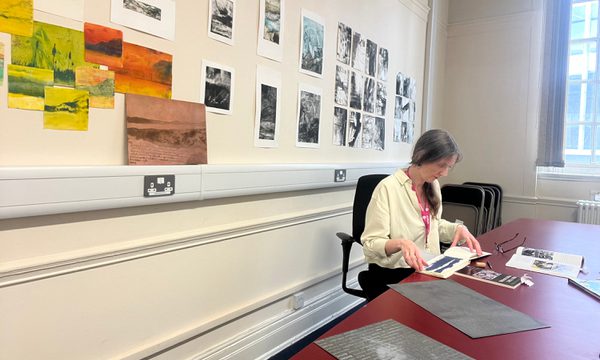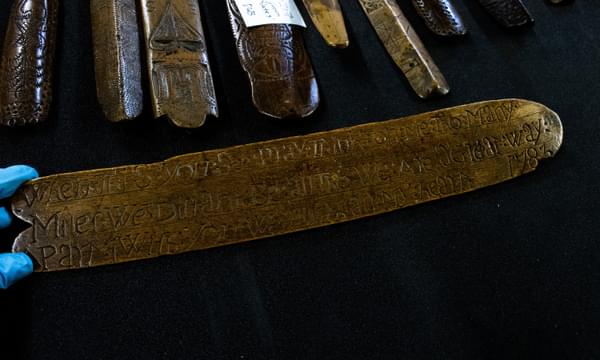News Story
First and foremost I am a cartoonist. That means I tell stories in the form of graphic novels and comics. This has often been with the aim of uncovering obscure and possibly challenging parts of history whilst entertaining readers with creative choices. I make ambitious comics that are informed by strong research both into historical events but also how things looked and how people behaved. As I continue to find inspiration in the Midlands, Birmingham Museums Trust is an essential resource for me and this fellowship was the ideal opportunity to work with them.
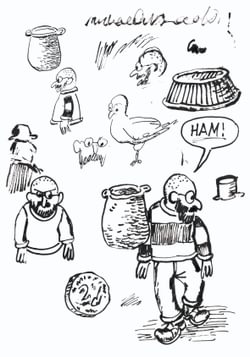
Discovering the marketplace
I had already outlined a couple of individuals in Birmingham's history in my existing research. My interest lay in street peddlers in the city's 19th century marketplace, Billy Button and Jemmy the Rockman to name a couple. Both war veterans, they used eccentric costumes, singing and other gimmicks to sell items in the market. All I had on them pre-fellowship was a couple of paintings and a paragraph about them in a 19th century tour guide. I wanted to know more.
In my first session, I met with Curator Rebecca Unsworth and Historian Jo-Ann Curtis to look at a broad range of items featuring working class individuals of note within the collection. Eventually we reached items relating to Jemmy the Rockman. Jo presented to me not only the painting of Jemmy I had seen on the digital collections website but the same metal tin he used to sell pencils and sweets from. I was able to handle the tin myself and really feel connected with the subject in a way I hadn’t experienced before.
Simply through conversation it became clear that the whole marketplace surrounding Jemmy had immense potential as a subject. Multiple individuals of note were presented to me. I requested to look at as many items as possible and Jo and Rebecca did an incredible job of showing me license plates, tokens, paintings, rat traps, prints and chiselled columns over the next few months.
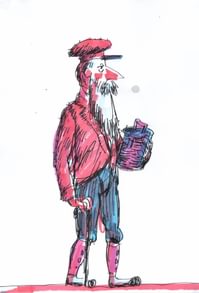
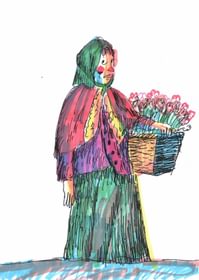
Responding to the collections
The fact I make work with dips, pens, brushes, ink and paper meant I could engage with many of the items as they were made in the same traditions.
In the Museum Collection Centre, I was limited to just a sketchbook, pencils and a camera. Due to the various locations and sizes of the items I was either drawing at a table, on my knees, or standing up. Along with the various time constraints, this yielded a really diverse set of sketches I can pull from.
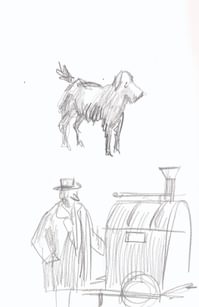
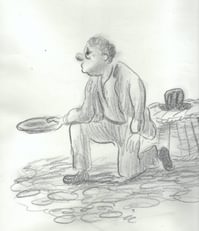
To produce new work in the museum studio, I added watercolour painting to my practice as I was working from the museum away from my computer, scanner and digital drawing software. I was able to incorporate my design influences from things like 18th century satirical prints and ceramics.
Post-fellowship
This fellowship has offered me an encyclopedic resource in the marketplace. Working from the museum has given me a new perspective on what type of work the museum going public likes to see. I plan on working in new mediums to communicate my research to the public. I also am planning on developing my work in learning and engagement to design workshops informed by the marketplace. Hopefully the public will be able to work with me soon in a workshop and see the research presented in an exciting new form for me as an artist.
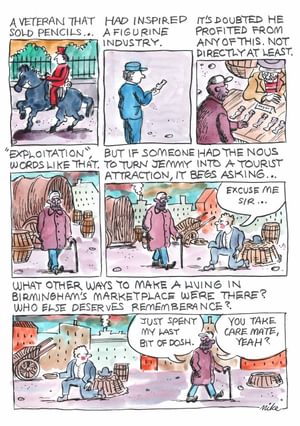
About Michael
Michael D. Kennedy is a graphic novelist, cartoonist, illustrator, researcher and educator. He is the author of the comics collection Milk White Steed published by Drawn & Quarterly in february 2025. His comics have been published in McSweeney’s Quarterly, The Believer, VQR and Vice. He has self published and collaborated in the small press since 2020. As an illustrator he has worked with the likes of the New Yorker, New York Times and the Atlantic.
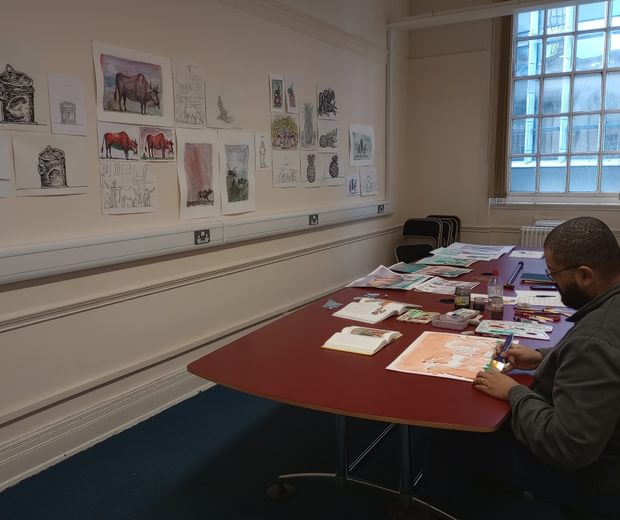
Whitworth Wallis Fellowship
Find about more about the Fellowship and who can apply.
